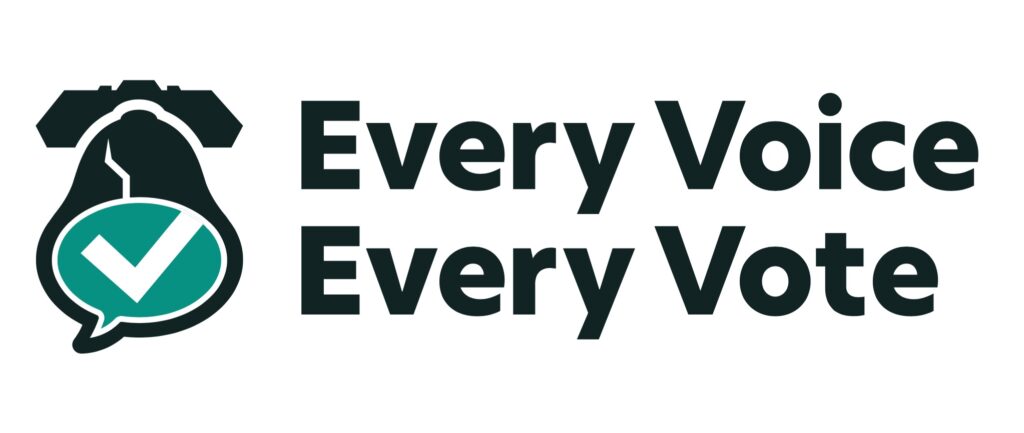“I needed a name that described me — and what and how I live my life,” said Korban Robinson, who had been using his chosen name for four years before making it official on his legal documents.
Because he needed support with this process, he applied for legal assistance through a trans-affirming name change program. It took four months before he was matched with a lawyer, but working with a team of experts helped Robinson, who lived in Montgomery County at the time, better understand and follow each step of the process.
“They are here to help you and will walk you through everything from beginning to end,” Robinson said.
It’s a lot to do. Trans and nonbinary adults pursuing a name change must identify requirements that are specific to their county of residence, obtain various documents — such as birth certificates and financial records, pursue background checks and fingerprinting, petition the court and request and file various forms along the way. Once a hearing is scheduled, they must also publish notice of the name change in local newspapers before appearing in court.
The state requires notice of intended name changes to be published in the Legal Intelligencer — which charges $214 for the service — and a second publication of choice. Those seeking name changes must find information about how to complete this step on their own — often leading to confusion. Publication fees alone often cost several hundreds of dollars, and even those who have pro bono legal support tend to pay for this out of pocket.
Robinson initially requested to waive one the requirement to publish the name change in local newspapers in an effort to preserve his privacy and safety, but that delayed his court date. He eventually decided to proceed without the waiver — but it took additional time for him to find the funds to pay for that step. By the time Robinson’s entire name change process was finally complete, it had taken just over a year from start to finish.
Even though the process might look straightforward on paper, many of the tasks have multiple steps, must be completed in a certain order, and can come with costly fees. Even when they have support, many people encounter hiccups along the way.
A judge required Evan, who also pursued their name change in Montgomery County, to send a certified letter to their parents — who they lived with at the time — informing them of the name change even though this step isn’t required by law.
“They are decently accepting of my name change, so they knew before I even filed for it,” they said. “It felt unnecessary to send a letter from my address to my same address.”
Others also found some of the steps unnecessary — calling them tedious, antiquated, confusing and overly complicated. Many underlined that the in-person requirements should have been online tasks.
“The biggest challenge was finding the time to run all the errands required,” Evan underlined.
Some spent over $100 simply picking up and filing forms. Parking, public transportation, childcare and other adjacent fees added up. Some also lost wages and experienced difficulty adding so many chores to their own to-do lists.
Additional steps might exist for people who have been convicted of certain crimes or are on probation, owe debts, are involved in family courts systems, or might have other special circumstances — but none of these experiences automatically disqualify anyone from changing their name, explained Adrian Lowe, program director of the Jaci Adams Identity Initiative through the AIDS Law Project of Pennsylvania.
“They’ll want to create a robust record that shows that this person’s not trying to escape from their debts, [for instance] — that they have a legitimate, non-fraudulent reason for changing their name,” he said, noting that legal precedents exist that show judges awarding name changes even to those who are legally barred under current statutes.
His team tends to get referrals from organizations that serve especially marginalized people — such as LGBTQ+ people who are unhoused or have criminal records — but even those without these kinds of considerations can make use of legal aid and support services.
Typically, it takes LGBTQ+ people between one and three months to complete a name change, explained Adrian Lowe. Attempting to waive publishing requirements could create delays — especially if judges require court appearances to address requests, he said, but judges in Philadelphia often offer waivers with less gripe.
“Trans people are vulnerable to all kinds of harassment and abuse and violence, so I wish people knew that that was something that they could ask for,” Lowe said.
Tabitha Crawford, a trans woman who is still in the process of legally changing her name, said this isn’t widely understood. She thought she wouldn’t be permitted to waive publication requirements because proof of potential danger and issues of domestic violence are emphasized in the literature, and this doesn’t apply to her own situation.
“My proof was, ‘There’s a lot of transgender hate going around, and publishing my name feels like a mistake,’” Crawford emphasized, noting that the idea of arguing that stance in court felt overwhelming. “It didn’t feel like a concrete enough reason.”
She was similarly confused about where to find support. Although links to resources are provided by state and local government agencies, the language surrounding those programs emphasize constraints she doesn’t have — such as limited income.
She has spent seven months and approximately $700 on her name change, and she is constantly worried that one minor misstep could cause a major problem.
“What’s especially annoying is that if something goes wrong, you don’t get that money back,” she said. “You’d have to pay for it all over again, and that’s daunting.”
Although some changes might require new laws, Crawford believes the court system already has the ability to streamline the name-change process for trans people — because it’s already done this in the past. Many trans people who pursued name changes during COVID shutdowns were offered the opportunity to attend court via Zoom or weren’t required to attend court at all.
Tessa Bott, a trans woman who is also awaiting an upcoming court date to finalize her name change, is similarly worried about potential issues as she navigates these last steps. This includes submitting information for a required “judgment search” — which informs the court of any outstanding debts and court-determined judgments. As someone who previously lived in Georgia, she said she’s “scrambling” to figure out how to retrieve documents from that state in time for her court date.
“This entire process could be entirely digital, save a ton of time and headache, and eliminate the possibility of human error,” she underlined.
These kinds of updates to the system could be coming. In 2022, a package of bills was introduced to the Pennsylvania state senate that would ease some of the burdens trans people face when trying to change their names.
“While an entirely new name-change process is needed, this legislation sets forth reasonable, initial steps that can be taken now to improve the safety, stability and wellbeing of our trans community in the Commonwealth,” reads a press release that was published when the bills were reintroduced in 2023.
If passed, these bills would simplify the name change process creating a website that clearly outlines steps and connects people with culturally-competent support. They would also allow residents to submit forms online and at local PennDOT license/photo centers, increase funds to grants that offset typical costs associated with the process, remove the requirement to publish public notice of name changes, eliminate barriers and bans that currently exist for people convicted of certain crimes, and remove designators that assign sex at birth from birth certificates.
That package of bills is currently assigned to a committee, where lawmakers should be deliberating over the proposals — but advocates believe it’s time for public discourse about the topics to get started.
“We’ve been tracking this legislation since 2022,” said Naiymah Sanchez, senior organizer with the ACLU of Pennsylvania, highlighting the lack of movement. “Now we’re in the ’23 to ’24 legislative session, and another legislative session will start next year!”
“We have sent letters to [the] leadership who chairs these committees, asking for these bills to be brought up for a hearing,” she said. “Schedule a hearing! Let’s talk it out. Let’s see what’s preventing us from moving forward.”

